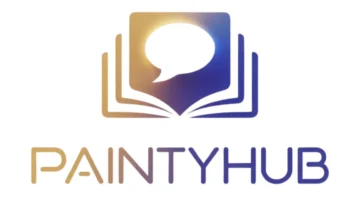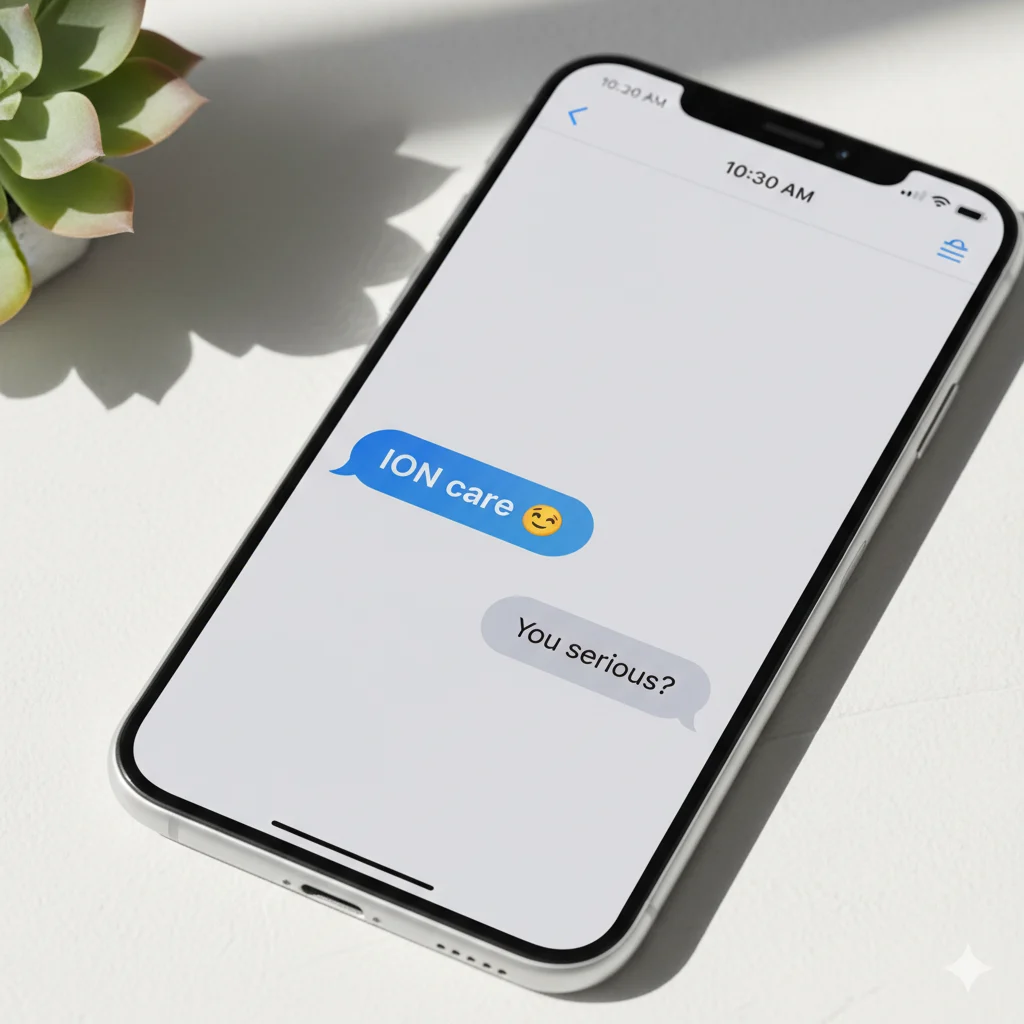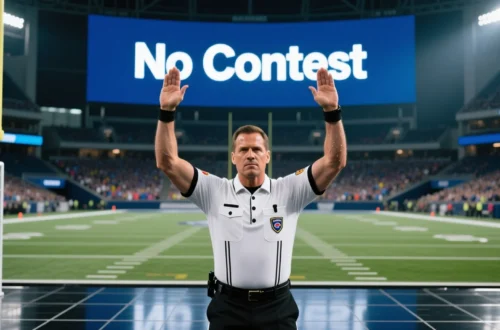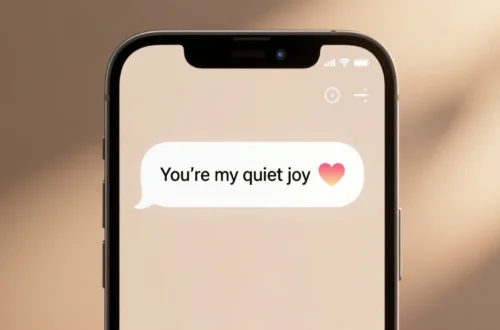Hey there, social-media user, gamer or casual texter 👋!
Ever come across a message like “ION care about that” or “ION know what’s going on”, and wondered “What does ‘ION’ mean in this context?” If you use apps like WhatsApp, TikTok, Instagram or play online games—this article is for you. Today we’ll unpack what “ION” means in text, why it’s showing up everywhere, how to use it naturally, and when it might not be appropriate.
Understanding this simple abbreviation helps you stay fluent in modern chats, avoid mis-reading meanings, and respond with confidence. Let’s dive in and decode what “ION” stands for and how to use it like a pro.
Definition & Meaning
So, what does ION mean in text?
👉 ION stands for “I don’t.”
It’s a phonetic contraction of “I don’t,” reflecting how some people say it casually (“I-don’t” → “ion’t” → “ion”). For example:
- “ION care” = “I don’t care.”
- “ION know” = “I don’t know.”
Key points
- It often signals disinterest, refusal, or simply negation in a casual chat.
- It is informal slang, used mostly in casual texting, social media comments, DMs.
- The meaning depends on the phrase it’s attached to. If someone says “ION wanna go,” they’re saying “I don’t want to go.”
Using “ION” keeps messages short, informal, and aligns with modern texting style.
Background & History
The usage of ION comes from the trend of writing how we talk, especially in digital spaces. In casual speech — particularly some varieties of spoken English including AAVE (African American Vernacular English) — “I don’t” may sound like “ion’t” or “ion.”
Social media platforms like TikTok, Snapchat, and Instagram helped popularize this shorthand because of the speed and casual tone of posts, comments, captions.
As texting culture grew, users shortened phrases to type quickly and express emotion or attitude — “ION” became a way to say “I don’t” with a certain vibe: relaxed, dismissive, or clever.
Usage in Various Contexts
Here’s how you’ll see “ION” used across different situations:
Texting / Mobile Chat
Example:
Friend 1: “Wanna grab lunch?”
Friend 2: “ION feel like it today.”
(= “I don’t feel like it today.”)
Social Media
In a caption or comment:
“ION even care if people judge me 😉”
Here “ION” = “I don’t,” showing indifference or confidence.
Gaming or Online Communities
In a game chat:
“ION got ammo — we gotta retreat.”
Again, “ION” means “I don’t.”
Group Chats / Casual Conversations
Example:
A: “Did you do the homework?”
B: “ION know where it is.”
(= “I don’t know where it is.”)
Thus, “ION” is versatile—but always informal.
Common Misconceptions & Clarifications
Because “ION” is short and slangy, there are a few misunderstandings:
- ❌ Misconception: “ION” always means “ion” as in the chemistry term.
✅ Clarification: In slang/text context, it means “I don’t.” The chemistry definition is unrelated. - ❌ Misconception: It’s formal or professional.
✅ Clarification: It’s very casual—avoid in work emails, resumes, formal writing. - ❌ Misconception: It always expresses negativity.
✅ Clarification: While often used for refusal or disinterest, tone and context matter—sometimes it can just be playful.
Tip: If you’re unsure of how “ION” is meant, look at surrounding words—if it’s about not wanting something, “I don’t” is probably correct.
Similar Terms & Alternatives
Here are some related slang terms and how they compare:
| Term | Meaning | Tone |
|---|---|---|
| ION | I don’t | Casual, informal |
| IDK | I don’t know | Casual |
| IDC | I don’t care | Casual + dismissive |
| I DON’T | Full phrase | Neutral / formal |
| I’m not | (Negation) | Neutral |
If you need something more polite or formal:
- “I don’t mind.”
- “I’m not interested.”
- “I’m unable to.”
How to Respond to This Term
When someone uses “ION,” your response can depend on tone and relationship:
Casual Response
Friend: “ION want to watch that movie.”
You: “Cool, maybe next time then.”
Funny Response
Friend: “ION care what they say.”
You: “Plot twist: everyone notices anyway 😜.”
Professional Response
Avoid using “ION.” Instead say:
“I’m not able to attend that meeting.”
Clarification Response
If unsure:
“Just checking — when you say ‘ION,’ do you mean you don’t know or you don’t want to?”
Regional or Cultural Differences
“ION” is most common among younger users in English-speaking regions. Many sources point to its origins in AAVE and then wider adoption online.
- 🇺🇸 United States: Very common in texting/slang.
- 🇬🇧 United Kingdom: Seen, but possibly less frequent.
- 🌍 Globally: Users adopt it via social media, but awareness may vary.
Because it originates from spoken expression (“I don’t” said quickly), regional accents affect how often or how naturally it’s used.
Comparison with Similar Terms
Here’s a table to help you compare “ION” with similar expressions:
| Abbreviation | Meaning | Use Case | Formality |
|---|---|---|---|
| ION | I don’t | Chat/text/social media | Very informal |
| IDC | I don’t care | Dismissive tone | Very informal |
| IDK | I don’t know | Asking or uncertain | Informal |
| I DON’T | I do not (full) | Neutral or formal | Formal |
Usage in Online Communities & Dating Apps
On platforms like Tinder or Bumble, someone might say:
“ION message back if you won’t be serious.”
Here “ION” = “I don’t.”
In gaming chats or forums:
“ION have heals — back off.”
Because “ION” is short and expressive, it fits well in fast-moving online spaces. But remember: the recipient might misinterpret tone — without context it could seem dismissive.
Hidden or Offensive Meanings
Good news: “ION” itself doesn’t carry offensive meaning.
However, tone matters. If used in a serious conversation (e.g., “ION care about your problems”), it might come across as rude or insensitive. So:
- ✅ Use it among friends in casual chat.
- 🚫 Avoid it when discussing serious topics or with someone who expects formality.
Suitability for Professional Communication
In work settings, avoid using “ION.” It will likely appear too informal or may confuse readers unfamiliar with the slang. Instead, use full phrases like:
- “I do not have that information.”
- “I am not interested at this time.”
- “I cannot commit to that.”
Then you maintain clarity and professionalism.
FAQs
1. What does ION mean in text?
It means “I don’t.”
2. Is ION the same as IDC or IDK?
No. IDC = “I don’t care,” IDK = “I don’t know.” ION = “I don’t.”
3. Can I use ION in formal writing?
No — it’s slang, best for casual text and social media.
4. Who uses ION the most?
Young social-media users, gamers, people in rapid chats.
5. Is ION rude?
Not inherently, but depending on context it can sound dismissive.
Conclusion
To wrap up — ION is a casual, modern texting abbreviation meaning “I don’t.” It pops up in chats, comments, and social media to express denial, disinterest, or refusal. While it’s perfect for informal digital conversations, it’s not suitable for formal or professional settings. Next time you see “ION,” you’ll know exactly what to think — and how to respond smartly. Stay sharp, stay slang-savvy! 😉






